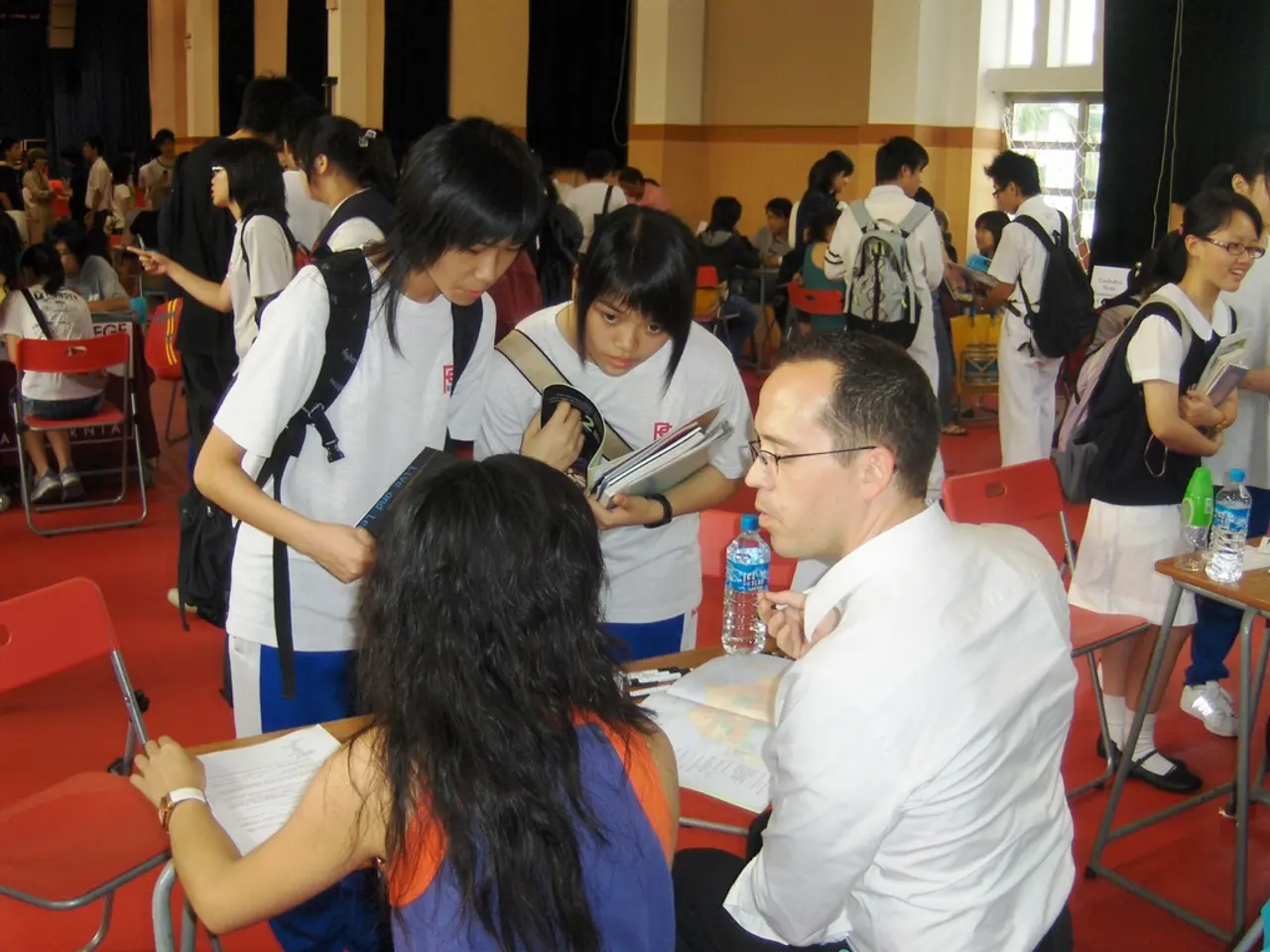Maintain Composure with Below-Average Grades: Guidance from Professionals - Maintain composure when faced with poor academic performance, counsel from professionals suggests.
In the face of a disappointing school report card, both parents and children can feel frustrated and unsure of how to address the issue. However, experts emphasise that fear and blame should be replaced with understanding, communication, and constructive planning.
**For Parents:**
Staying calm and showing empathy is crucial. Instead of reacting with blame or pressure, respond with empathy to encourage open communication. Remember that one bad grade does not define the child; it is just one part of their learning journey.
Looking for patterns, rather than focusing on a single grade, can help identify if the issue is isolated or reflects a broader challenge. Reach out to teachers with exploratory questions, focusing on how the child participates in class, what challenges they observe, and what support might help.
Creating a structured homework routine, setting a consistent time and place for homework, breaking assignments into manageable steps, and encouraging breaks can improve concentration. Helping with organisation, such as teaching the child to prepare their materials and homework for the next day, can also be beneficial.
If learning difficulties persist, consider hiring a tutor or seeking evaluation for learning disabilities. These steps provide tailored help and should be seen as an advantage, not as parental punishment.
**For Children:**
Understand that one bad report card does not define your abilities or future success. It is a signal to ask for help and adjust your approach to learning. Work with parents and teachers to identify what makes learning hard and what accommodations or strategies can support you.
Participate actively in discussions with your teachers and parents about what helps you focus and learn best. This makes you a part of the team working to support your success.
**Together,** this approach shifts the mindset from blame to partnership, focusing on long-term growth and support rather than punishment. It involves understanding the context behind the grades, direct communication with educators, implementing structured routines and organisation, and seeking specialized support where necessary.
The school psychological counseling center advises setting small, achievable goals. For 2.5 million students, summer vacation begins on July 14th. Pressure or punishment, such as canceling beloved soccer training, is wrong and counterproductive, the psychologists warn.
Not all students will be satisfied with their grades. Parents should show solidarity and work with their offspring to find ways to improve performance. No overwhelming goals should be set.
Telephone counseling services of district governments and school psychological services are available. "Number against Sorrow" is a resource for children and young people seeking comfort and advice regarding a bad report card.
Performance pressure, stress at school, fears of failure, and conflicts with parents are common issues among students all year round. The counseling center of the Rhein-Sieg district advises that children need the security that their parents stand by them.
Accusations and punishments are not effective in improving school performance in the long run. Performance pressure can lead to stress and anxiety, which can hinder learning. Instead, a supportive and understanding approach is key to helping children overcome academic challenges and achieve success.
To foster improvements in a disappointing report card, families can focus on community aid such as vocational training opportunities to promote education-and-self-development and personal-growth. collaborative efforts, including teachers, parents, and the child, can help create a structured routine, adapt learning strategies, and seek specialized support where needed, ultimately fostering a mindset of partnership rather than blame. Parents should encourage children to view a poor report card as an opportunity for learning and self-improvement, not as a defining factor, while offering unwavering support.




